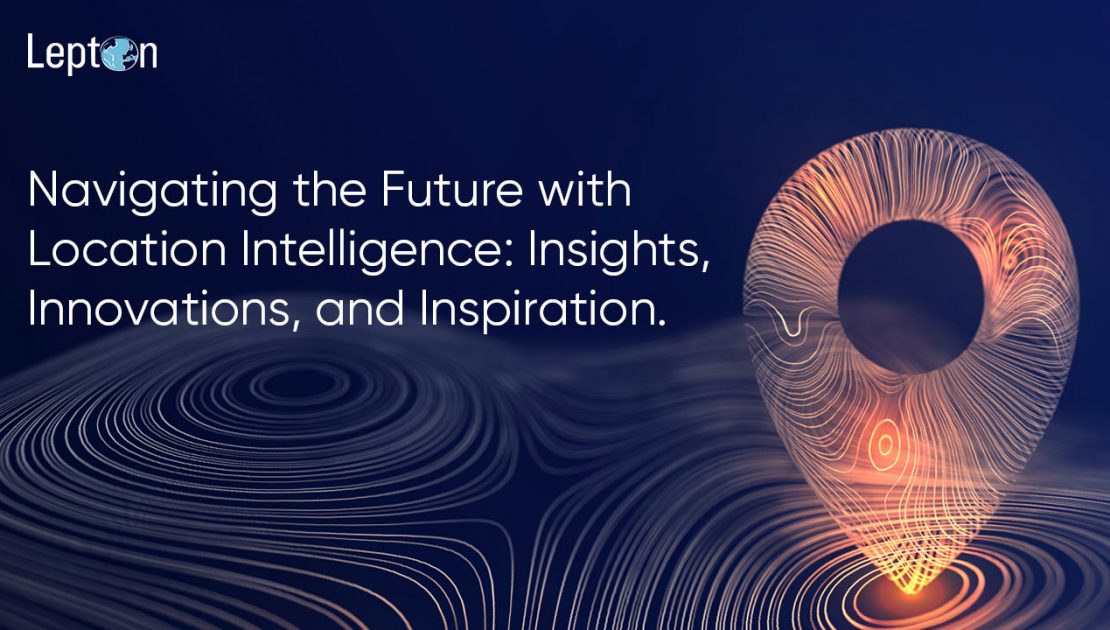With soaring hot temperatures affecting people worldwide, this summer is forcing many of us to stay indoors. To keep you occupied while you cool off indoors, we’ve put up a blog post on our latest webinar on location intelligence.
We’ve assembled this blog post summarizing the major insights and solutions offered for those who missed the webinar or want to reread the subject.
Key Takeaways:
- What is location intelligence, and why does it matter?
- Industry-wise Use Cases regarding location intelligence
- Discussion about various location-based solutions
Throughout the Webinar, we explored the importance of location data and how it can be used to make better business decisions. Our expert panel discussed how location information can help firms of all sizes and across sectors acquire a competitive advantage.
So, without further delay, let’s get started.
What is location intelligence, and why does it matter?
The use of geographical data and technologies to comprehend spatial relationships, patterns, and trends is referred to as location intelligence. It entails analyzing geographic data to generate insights, make educated decisions, and gain a competitive edge. Location intelligence can benefit organizations in many industries, including retail, mobility, and financial services, by offering critical insights into customer behavior, market trends, and operational efficiency.
Discussion about Industry Wise Use cases
Location intelligence in Retail can assist firms in expanding their worldwide retail footprint by designing a strategic site growth strategy, optimizing dealer/distributor networks, and performing shop inspections. Businesses can use location intelligence to identify market gaps, opportunities, threats, and penetration data, as well as to analyze possible consumer locations using catchment analysis and to get access to client demographics and purchasing behavior to better marketing efforts. Businesses can boost retail distribution, acquire a competitive advantage, and improve customer experience by selecting new outlet or warehouse locations based on the distribution of valuable consumers and controlling the equitable distribution of stores in a city.
In Mobility LI can assist organizations in optimizing routes for last-mile operations, reducing wait times, and increasing customer satisfaction. Businesses can discover regions of high demand and limited supply of rides by analyzing real-time traffic data and demand patterns and then optimizing driver distribution to areas of higher demand. This can improve operational efficiency and minimize driver idle time while also allowing for improved decision-making based on insights into consumer behavior and demand trends.
In BFSI, it can assist firms in branch network expansion, improving customer service offerings, detecting fraud in real-time, and gaining a competitive advantage. Businesses can improve customer satisfaction and loyalty, increase profitability and growth, and improve decision-making by analyzing customer demographics and behavior, mapping competition and identifying underserved areas for new branches, optimizing staffing, scheduling, and service offerings with predictive modeling, and recognizing suspicious spending patterns.

Location Based Solutions
SmartMarket: SmartMarket is a robust tool that assists businesses in improving their existing and new store strategy by giving actionable information to help them grow.
SmartData: It provides businesses with industry-specific societal indicators and data such as demographic, socioeconomic, mobility, and affluence to power their analytics.
Google Maps Platform: With Google, create better experiences and improve operations with rich, detailed geospatial data, helpful mapping tools, and industry-leading reliability.
Google Earth Engine: The commercially available Google Earth Engine blends a multi-petabyte catalog of satellite photos and geographical datasets with planetary-scale research capabilities.
Digital KYC: It is a KYC application for client registration that makes use of Google Maps APIs and off-the-shelf data.
Geocoder: It is Google Maps API combined with off-the-shelf demographic data to assist clients in converting addresses to Lat-Long and vice versa.
Catchment Analysis: Drive time/Drive Distance polygons with demographic & affluence data to understand the potential for the new site selection.
SmartTrack– Online application for administrators and mobile apps available on-premise and in the cloud. Designed for field force monitoring and contains a Google Maps UI to help you enhance business productivity and lower costs.
Store Locator: With a store locator, drive customers to your branches and ATMs. Make it simple for clients to discover you with Directions and Distance Matrix, which transforms any two addresses into a list of routes complete with distances and ETAs depending on current traffic.
At Last,
Whether you are a small company owner or an experienced CEO, the ideas offered throughout the webinar will be beneficial to you. So why not devote some time to watching the recording?
Don’t pass up on this chance to learn from our experts and obtain a better grasp of how location intelligence can help your business!
Extend your knowledge and start on a thrilling journey with our cutting-edge location-based services! If you want to expand your business strategically, our professional advice on embracing location-based solutions is just a click away. Contact us today to discover new opportunities!
Keep an eye out for more forthcoming industry-specific webinars from our team as we continue to offer you the most recent location intelligence trends and insights in the field.

